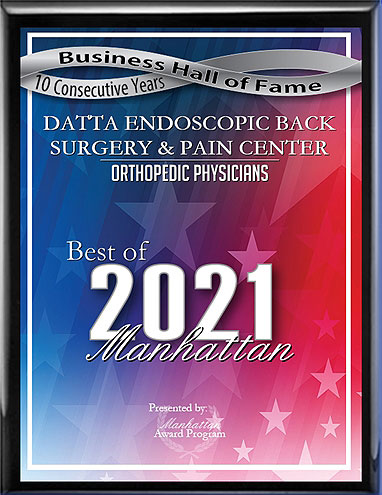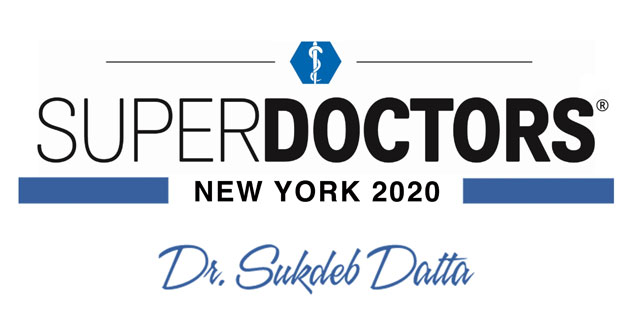Spine problems have the potential to cause chronic back pain and other symptoms. The majority of spine conditions can be treated without resorting to surgery. However, some cases do require surgical treatment. The cost of surgery can vary significantly from procedure to procedure. In general, the majority of patients are able to afford their surgery with the help of insurance, and the benefits outweigh the costs.
About Spine Surgery
Spine surgery is typically reserved for cases where non-surgical methods have failed, or for cases where symptoms are severe or progressive. The majority of patients can now be treated using minimally invasive spine procedures such as laser spine surgery and nerve stimulation. These methods have a number of advantages over traditional, open spine surgery:
- Small incisions - There is no large scar, which reduces the risk of bleeding and infection.
- Fewer major interventions - There is usually no need to cut through muscle and bone to operate on the spine.
- Lower risk of side effects - There is a reduce risks of side effects such as bleeding, blood clots, and infection. Although both types of surgery are considered safe, it's best to choose the procedure with a lower risk of side effects whenever possible.
- No general anesthesia - The risk of side effects from anesthesia is accordingly reduced.
- No hospital stay - Patients are able to recuperate safely and comfortably in their own home. Since it's possible to get up and moving sooner after surgery, the risk of blood clots is lower. Pain associated with surgery is also lower, which is why it's possible to recover at home.
- Shorter recovery time - The recovery time associated with minimally invasive spine surgery is about 1/4 that associated with traditional spine surgery, meaning that you can get involved in your everyday life soon after surgery.
Minimally invasive procedures can be used for most common spine conditions, such as herniated discs, spinal stenosis, and bone spurs. However, patients with severe or extensive conditions like scoliosis or spinal tumors may still require traditional spine surgery. In cases where traditional spine surgery is indicated, the benefits do outweigh the risks and costs.
Who Needs Spine Surgery?
Only your spine surgeon can determine whether or not you're a good candidate for spine surgery. If you have a back condition that has not responded to non-surgical methods, you may be a candidate for minimally invasive spine surgery even if you have been told you're not a candidate for traditional spine surgery.
You should discuss your treatment options with a trusted spine surgeon. Your spine surgeon will evaluate your condition and the treatment options by taking all of the relevant information into account. He will ask you about your current symptoms and medical history. He will determine what treatments have been used for your condition n the past, and how you have responded to them. Using physical examination and diagnostic imaging, he will confirm the cause and severity of your condition. Based on this information, he will be able to recommend a course of treatment, with an eye to keeping treatment as affordable as possible.
Factors Affecting Cost
Many issues affect the cost of getting treatment from a spine surgeon. Some of the most significant issues include:
- Type of surgery - Minimally invasive surgeries are typically less costly than traditional spine surgery, because the surgery is shorter and can be performed on an outpatient basis. In addition, the treatment following surgery may also be less extensive.
- Extent of condition - If your condition is extensive or complex, the surgery and treatment will be longer and require more resources, translating into higher costs.
- Hospital stay - If you need to stay in the hospital after surgery, the cost of treatment is significantly increased. In general, no hospital stay is necessary with minimally invasive spine surgery.
- Local cost of living - Surgery will typically cost more in areas with a higher cost of living.
- The physician - Some costs associated with surgery are unavoidable, but your spine surgeon can take steps to keep overhead costs to a minimum and pass those savings on to patients.
Cost vs. Benefit
Regardless of the costs of surgery, the benefits will outweigh the costs by a significant margin. In many cases, surgery resolves the spine problem in the long term, meaning that patients save on future health care costs. In addition, surgery allows patients to regain their quality of life and ability to participate in normal activities. Work productivity often increases, and the benefits of increased quality of life and living without pain are immeasurably valuable.
Managing Costs
Your insurance will cover your spine surgery as long as the procedure is deemed to be medically necessary. As a result, patients are only responsible for covering the portion of surgery that is not covered by insurance. This can vary significantly from patient to patient, as insurance plans vary so much in terms of their coverage.
Many patients are able to cover their out-of-pocket costs without issue. If you are not able to afford your portion of the surgery all at once, you can obtain financing for your portion. This allows you to spread the cost of treatment over an extended period of time. Financing options include:
- Credit cards
- Health care credit cards
- Loans
- Lines of credit
- Third-party financing from patient financing companies
With the help of insurance and financing, the vast majority of patients who need spine surgery are able to afford their treatment.
Affordable Spine Surgeons
The top affordable spine surgeon in New York City is Dr. Sukdeb Datta of the Datta Endoscopic Back Surgery and Pain Center. Dr. Datta is an experienced, acclaimed spine doctor who has helped many patients regain their quality of life. To keep costs low, he uses minimally invasive procedures whenever possible and runs an efficient office. Dr. Datta accepts most major insurance providers, including Aetna and Cigna.
Dr. Datta would be happy to meet with you about which treatment might be right for your spine condition. To schedule your consultation with Dr. Datta, please click below and enter your information or give us a call at (212) 430-0312.






 EDISCSCULPT
EDISCSCULPT



